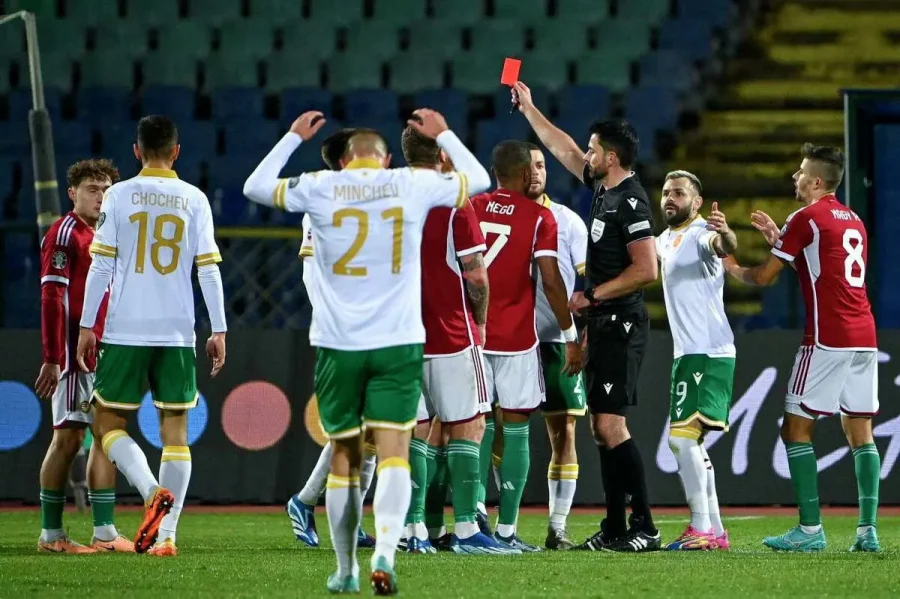Bulgaria’s failure to qualify for Euro 2024, extending the 1994 World Cup semi-finalists’ absence from major finals to two decades, has sparked demands from fans and analysts for radical change at the helm of the football federation.
Thousands of supporters gathered outside the stadium where Bulgaria were playing Hungary in a Euro qualifier on November 16, shouting “Resignation!” in reference to Borislav Mihaylov, the Bulgarian Football Union (BFU) president for 18 years.
Police used water cannons and batons to disperse the crowd and several dozen fans and police were injured in the violent clashes that followed.
“Mihaylov’s time as BFU president has left football in ruins. He doesn’t care about sport, only money and his own interests,” CSKA fan Chavdar Tanev, 72, told AFP at the protest.
BFU’s request for UEFA to order the game to be played behind closed doors in a bid to prevent fans from protesting against Mihaylov – a request to which European football’s governing body agreed – was the final straw, he added.
“The decline under Mihaylov is so obvious, we’re ashamed of the state of the sport. They’ve chased fans away from the stadiums,” said Levski fan Mihail Raychev, 36.
As accusations rained down on him, Mihaylov, 60, said he refused to be “a scapegoat” for violence and accused those behind it of being “paid provocateurs”.
He has called a meeting of the BFU executive committee but it is unclear if a resignation will follow. The former national team captain and goalkeeper is part of a generation of players who were once national heroes after leading Bulgaria to fourth place at the 1994 World Cup in the United States.
The last international tournament Bulgaria reached was Euro 2004. When Mihaylov was first elected a year later in 2005, fans regarded him as “the face of change” after the previous BFU president was voted out following an international corruption scandal, long-time sports journalist Stanil Yotov told AFP.
“Back then we thought that things were bad, we hardly had any idea how much worse they can get,” Yotov said.
Mihaylov’s reign has been dogged by allegations about match-fixing and illegal betting, including a FIFA investigation of a rigged national team friendly against Estonia in 2011, and revelations about alleged misuse of state funds.
He resigned after a scandal about racist chanting at a Euro 2020 qualifier against England in October 2019 but later withdrew his decision and won a fifth term.
“It’s the foundations of our football that are totally wrong,” Yotov said. Bulgaria’s national team has had 15 coaches during Mihaylov’s time as BFU chief and failed to qualify for any major tournament.
Yotov blamed lack of investment in infrastructure, corruption and neglect in youth football training schools and the reluctance of professional teams to foster local talent, instead hiring too many foreigners.
He says there must be a national conference on football to map out a strategy to lift the sport out of the doldrums.
“Bulgarian football needs shock therapy,” Petar Ganev of the Institute for Market Economy wrote in a recent opinion piece. “In economics, this is a term used when an abrupt change in multiple components of the governance model is required through a package of bold policies and measures.”
The overhaul must include public investment in stadiums, a new way for collective management of television rights and better transparency of club ownership, Ganev added.
Oligarchs had been ordered by politicians to provide financially for ailing clubs in the past. “What in our country is functioning well so that we expect from football to be doing well,” Gallup International political analyst Parvan Simeonov said in a recent television interview.
Deepening social divisions and grave corruption in society as a whole have contributed to turning former heroes like Mihaylov into anti-heroes, he added. “Like the country, like its football,” the elderly fan Tanev also said bitterly.—AFP










